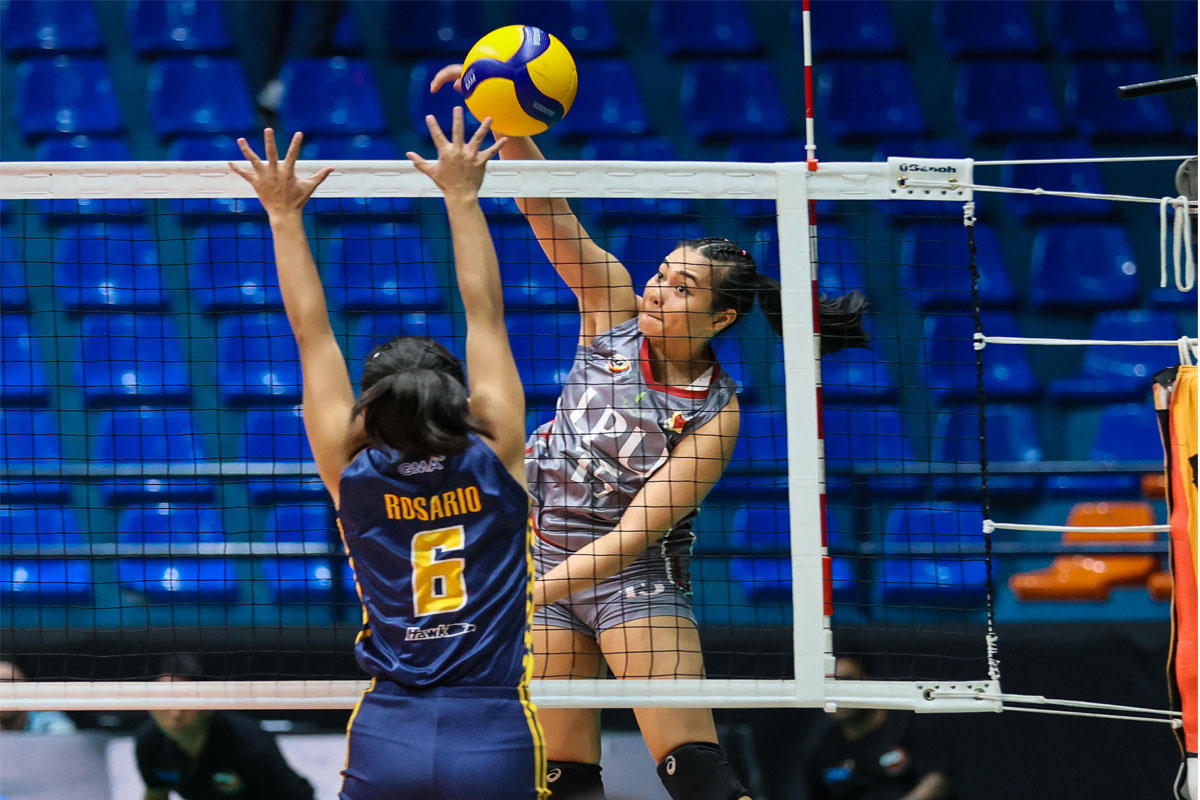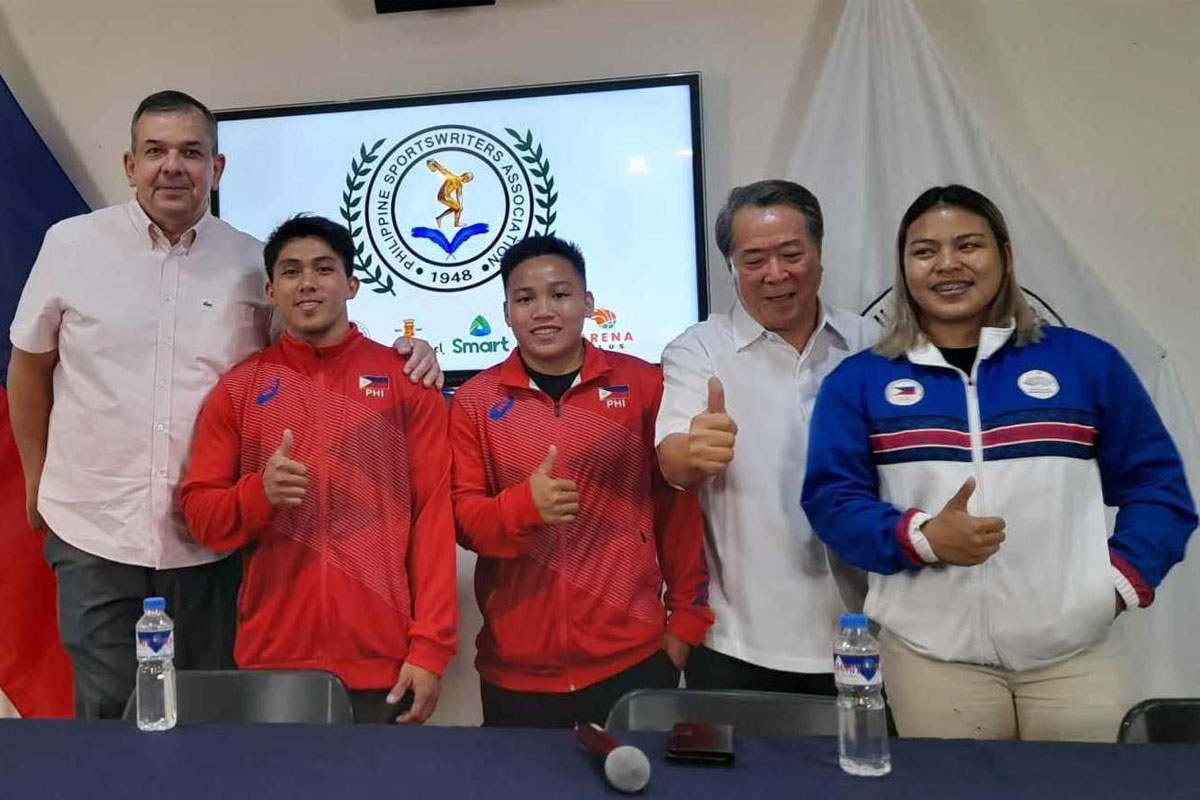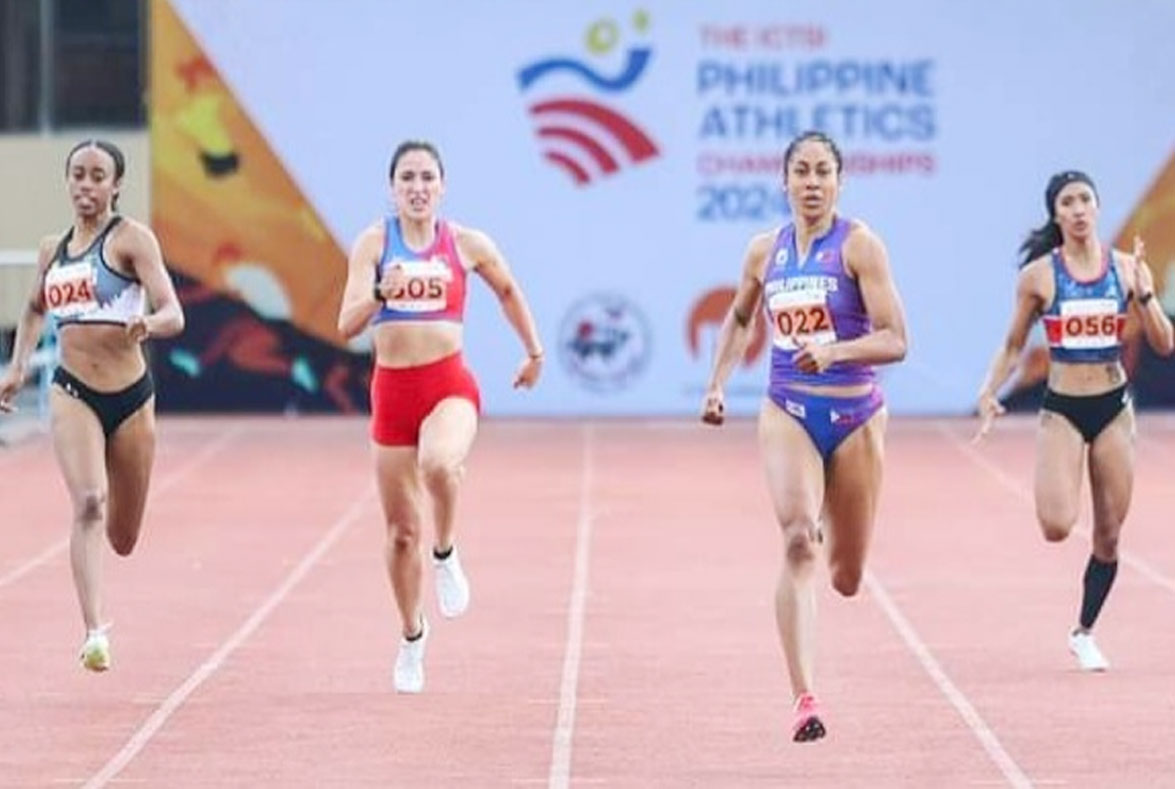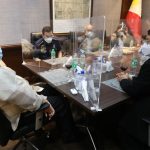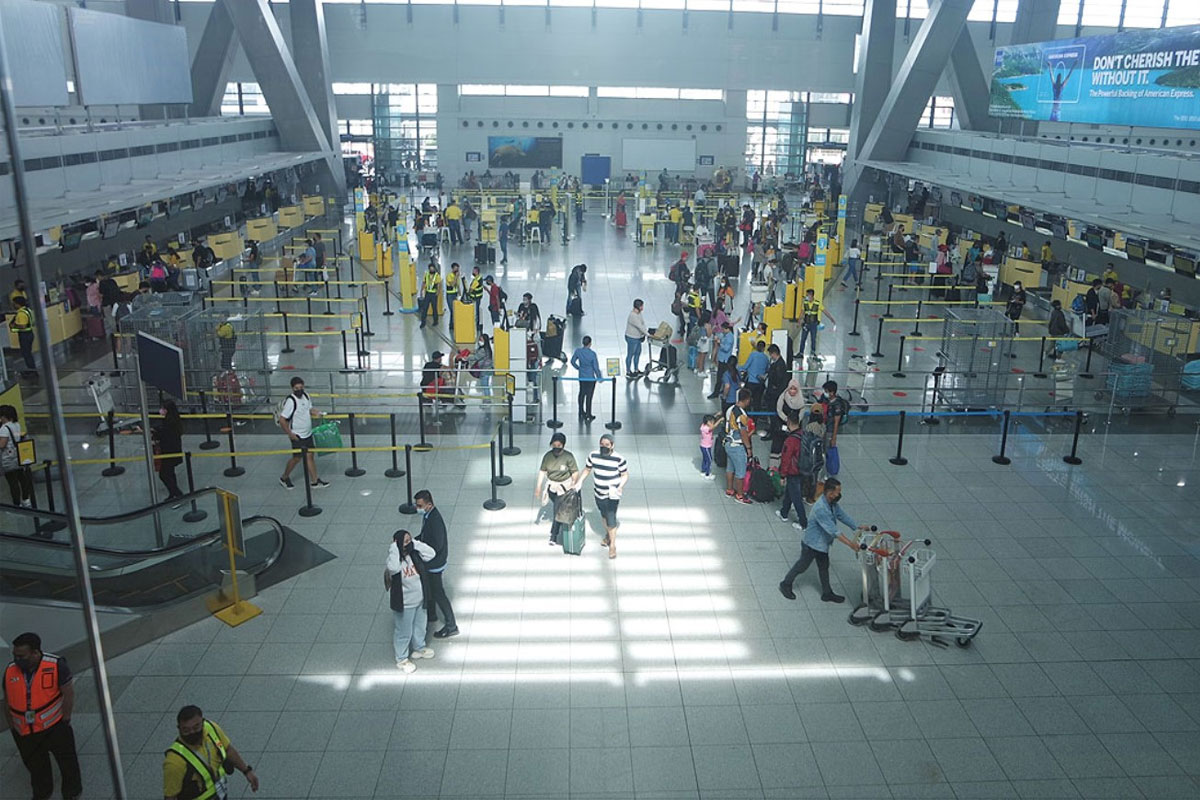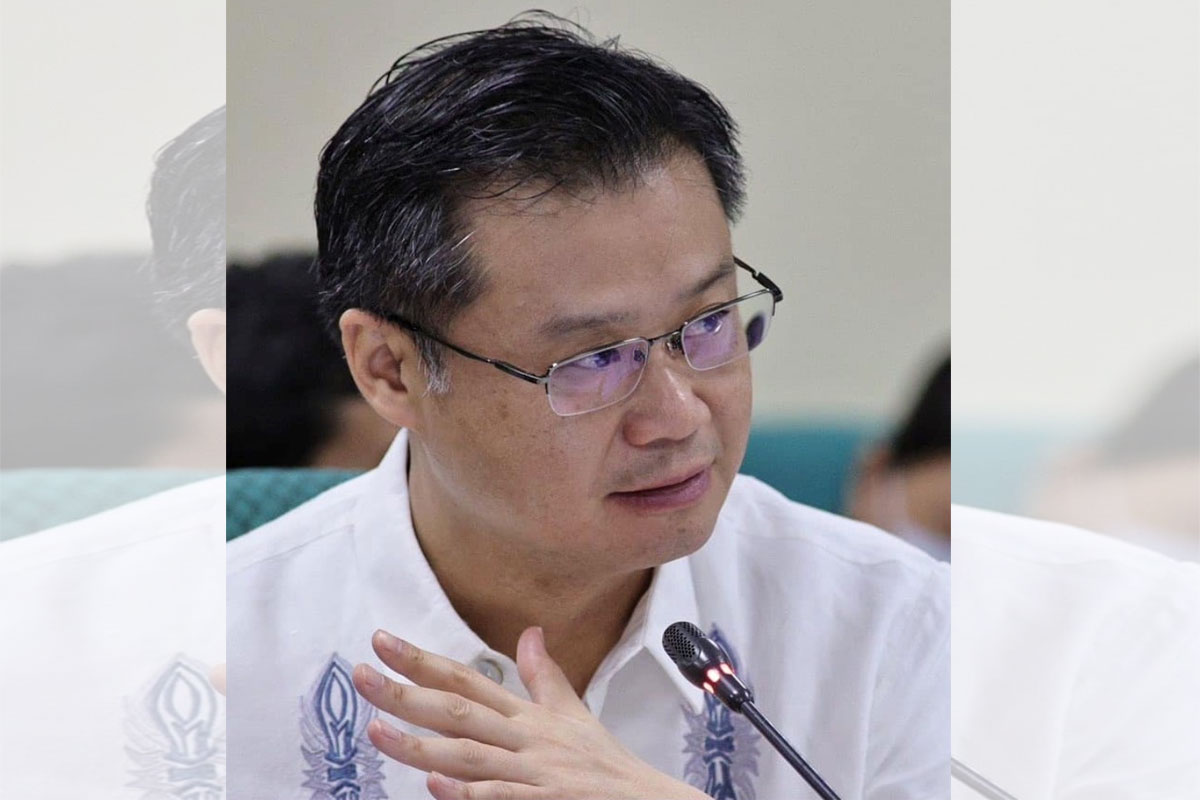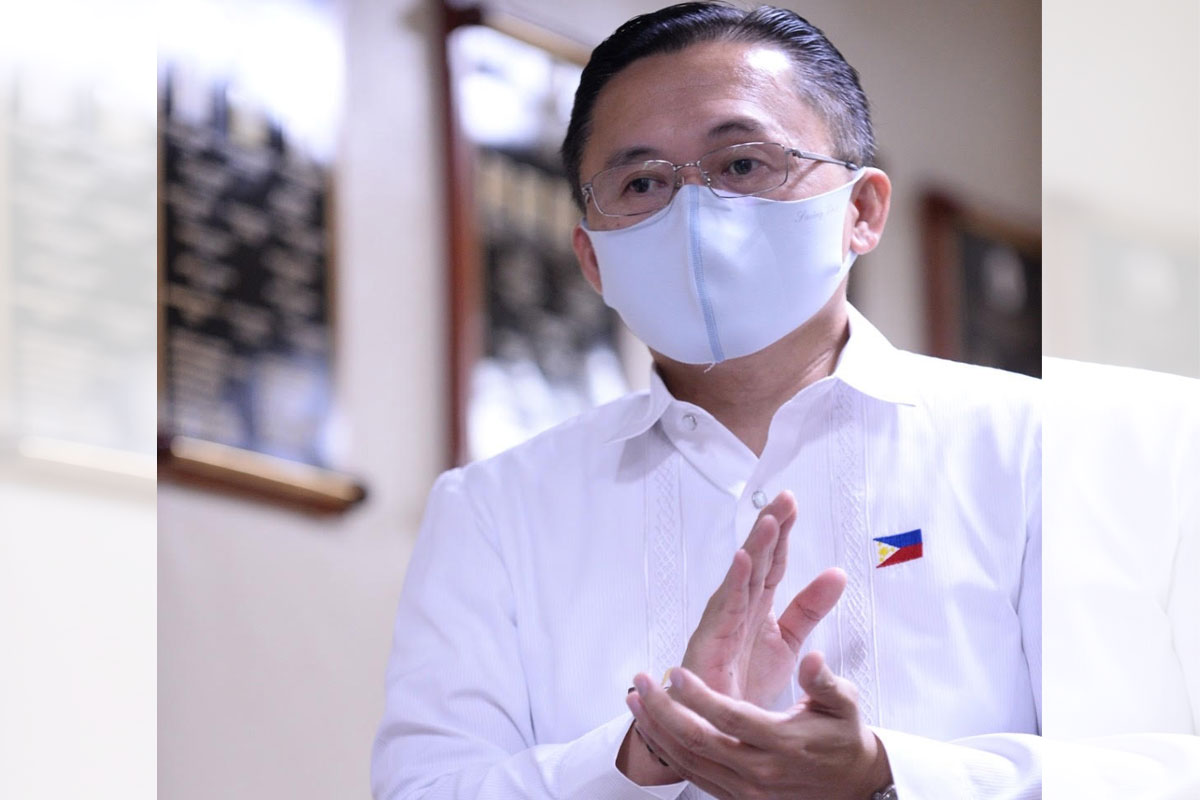
Bong Go pushes for continuous provision of SRA to health workers
SENATOR and Chair of the Committee on Health Christopher “Bong” Go underscored the importance of the country’s healthcare capacity in managing the pandemic as he pushed for measures that would further upgrade health facilities to strengthen the country’s healthcare system.
In his opening statement during the Senate Committee on Health hearing over which he presided on Monday, Go said that the pandemic has highlighted the importance of the Philippines’ health capacity, noting that the government should learn from this experience and focus its support on health.
“Sa totoo lang po, kaya tayo nahihirapan ngayon dahil sa kulang ang naging investment natin sa health kahit noon pa. Ngayon po tayo nagkakandarapa, ngayon tayo gumagawa ng modular hospital,” said Go.
“Kaya buo po ang aming suporta ni Pangulong Duterte sa Department of Health at sa lahat ng mga empleyado nito. Gusto ko lang ipaalala na bukod sa pagsiguro na mapangalagaan ang kalusugan ng ating mga kababayan, parte na rin po ng mandato ninyo ang pagsiguro na wala ni isang iregularidad sa mga hakbang na ating ginagawa. Naniniwala naman ako na buhay at kapakanan ng bawat Pilipino ang inuuna ninyo sa inyong trabaho,” he added.
Go also advocated for the continuous provision of Special Risk Allowance and other benefits and allowances to medical frontliners.
“Hindi po naisama sa 2022 National Expenditure Program ang pondo para sa allowances ng public and private healthcare workers. Ayon sa DOH, i-aapela nila ito sa Kongreso para mabigyan ng pondo,” said Go.
“Ako naman po, susuportahan ko po ito at ipaglalaban ko po na maisama ito sa budget pagdating ng deliberasyon dito sa Senado. Dapat lamang na mabigyan ng kaukulang pagkilala ang sakripisyo ng healthcare workers. Hindi po sila dapat ma-low morale dahil sila ang frontliners sa giyerang ito,” he pointed out.
The Senator added that the virus continues to put health workers’ lives in danger and that it is only right that they receive risk allowance from the government.
“At sa totoo lang po, hindi naman natin nakikita itong COVID-19, kahit sabihin mong ito lang po ang exposed, ilan lang po ang exposed, hindi natin alam baka sa ibang floor na dinaanan nila, na exposed na sila dahil hindi nga natin nakikita ang COVID-19 na ito,” noted Go.
“So, nakataya po ang buhay nila dito, kaya bigyan natin sila ng dapat nila matanggap. Sa totoo lang po, hindi naman mababayaran ng kahit anuman po ang buhay, ngunit mahalaga lang ito na sakripisyo nila para sa ating bayan,” he added.
Apart from ensuring the well-being of frontliners, it is also imperative that the government endeavors to upgrade the country’s current health facilities and establish even more health facilities especially in rural areas, according to the Senator. He further noted that most of the hospitals have reached critical risk in healthcare utilization.
“Kaya kulang ang mga ospital, mga kama at equipment dahil hindi natin ginastusan agad ang health system natin. Sa ngayon nga, kinailangan nating magtayo ng temporary and makeshift facilities, tents at modular hospitals para lang madagdagan ang healthcare capacity natin,” he added.
Go also cited his experiences when personally visiting public hospitals, noting that due to the limited bed capacity of some of these hospitals, poor patients are forced to stay in corridors and hallways.
“Sa pag-ikot ko po sa ating mga pampublikong ospital, ako mismo bumababa talaga ako, nagbubukas tayo ng Malasakit Centers, na-experience ko talaga kung ano ang nangyayari sa baba,” he said.
“Napakasakit po makita ang mga pasyente na nakaratay na lang sa corridors at hallways ng ospital dahil wala nang available na kama. Ang mga mahihirap po nating mga kababayan ang pumupunta sa mga pampublikong ospital. Sana ay pagbutihin natin ang serbisyo sa kanila,” he added.
Overcrowding in hospitals, according to Go, has slowed patients’ recuperation. This, he said, motivates him to work for local hospital measures that would upgrade and improve services.
“Sabi nga noon pa before pandemic, may mga ospital na 400% na po ang occupancy. Paano gagaling ang mga pasyente dyan? ‘Yun po ang katotohanan na nangyayari. Kaya hindi po ako titigil na ipaglaban po ang hospital bills natin sa abot ng aking makakaya,” said Go.
“Kaya lang po minsan problema talaga ang pondo, pinaghahati-hatian talaga ng mga ahensya pero hindi po ako titigil lalong-lalo na po kung ang mga mahihirap po ang makikinabang dito. Hindi naman po pumupunta ang mga mayayaman sa government hospitals, ‘yung mga mahihirap lang po ang pumupunta dyan,” he further noted.
With that being said, Go emphasized that the funding for the upgrade of these hospitals should be in line with the Mandanas ruling of the Supreme Court and its implications on the tax allocation for both the national government and the local government units. He added that the national government and local government units must work together to provide the much-needed health services.
“Dapat maayos ‘yan, nasa transition po tayo ngayon dahil next year effective na po ang Mandanas ruling. And I am sure ‘yung mga local government units natin ay magkakaroon po ng mas malaking IRA share,” said Go.
He added that he will see to it that there is enough funds to upgrade hospitals.
“Kung ako lang po ang masusunod, talagang suportado ko po ang pag-upgrade sa ating mga ospital dahil alam kong kailangan po talaga. Alam ko kailangan nyo po ‘yan dyan sa inyong mga lugar. Pinaghirapan ko po ipasa sa Senado ‘yung mga nakaraang hospital bills, pero baka masayang lang po ang mga panukala na ito kung wala naman pong pondo,” said Go.
“Kaya kailangan malaman mula sa DBM kung saan pwedeng kunin ang pondo para sa mga ospital na ito,” he said.
During the hearing Go presided, 25 bills were tackled in the committee level. Among these were the establishment of five hospitals, upgrading of 12 local hospitals and renationalization of 8 hospitals. The Committee also tackled bills on the regulation of traditional and alternative healthcare system.
The Committee will await the submissions of requirements imposed by the DOH such as an approved LGU resolution for the local bills and the National Economic Development Authority (NEDA)’s and/or Committee on Devolution (ComDev)’s assessment for the bills on renationalization of hospitals. The Committee also asked the DBM to submit the possible funding source for these hospitals.





